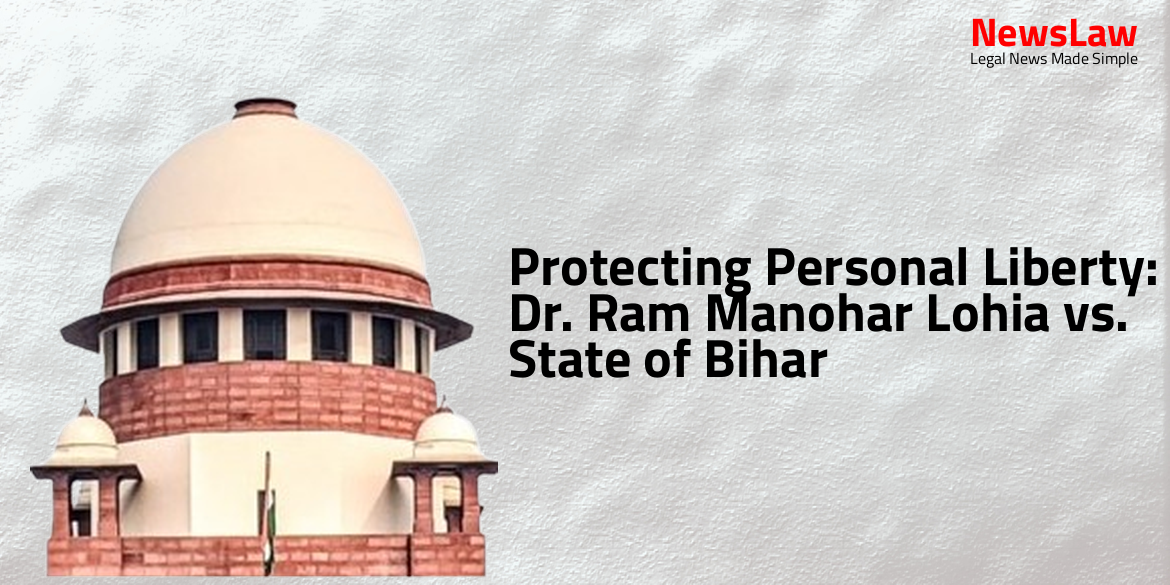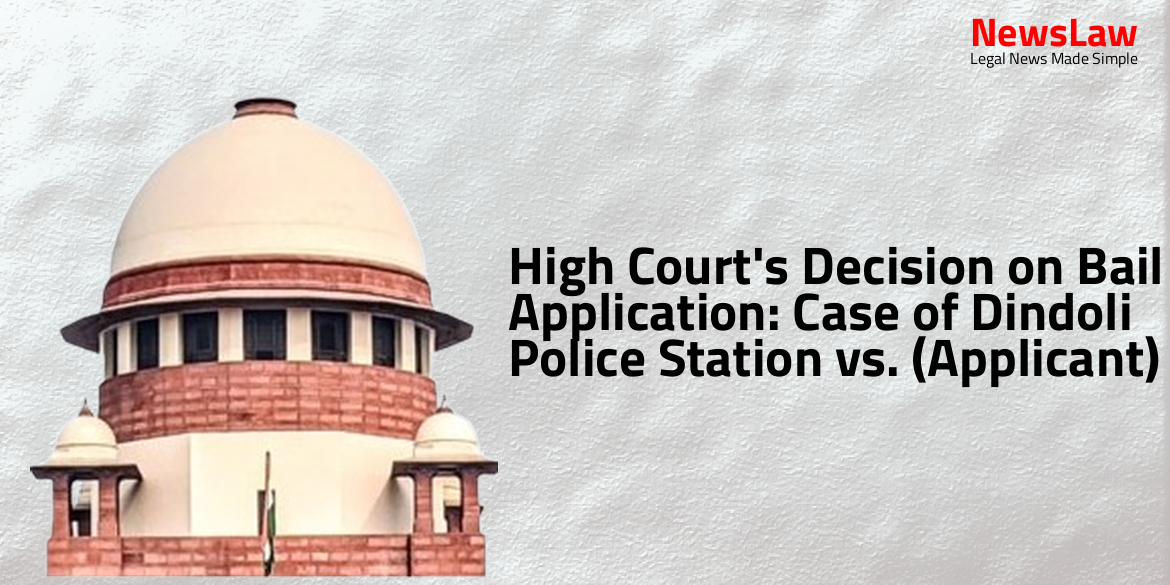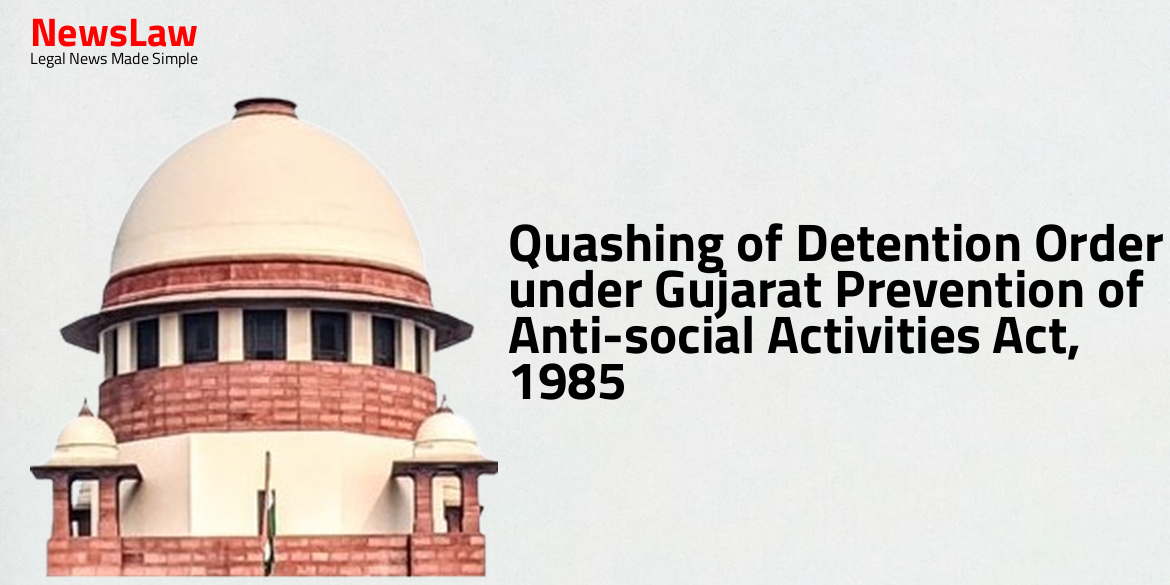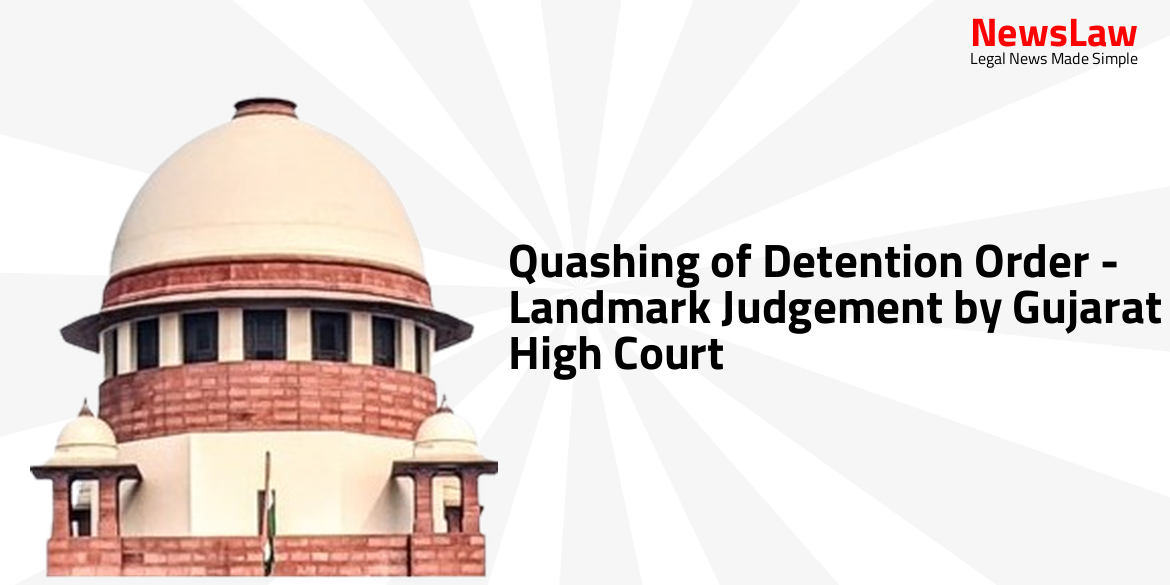In a landmark judgment, the Gujarat High Court has addressed the case of Dr. Ram Manohar Lohia vs. State of Bihar, focusing on the protection of personal liberty. The Court’s interpretation of Article 21 of the Constitution of India has far-reaching implications for the rights and freedoms of individuals. This case highlights the importance of balancing law enforcement with constitutional safeguards, ensuring that preventive detention is not misused to curtail personal freedoms under the guise of public order concerns.
Issue
- The key issue in this case involves determining whether the actions of the state government are in violation of Article 21 of the Constitution of India.
- The Court has to interpret the scope and application of Article 21 in the context of the present case.
- The interpretation of Article 21 may have significant implications for the rights and freedoms of the citizens involved.
- The decision will rely on legal precedents and constitutional principles to reach a conclusion on the constitutional validity of the state government’s actions.
Arguments
- Except the statements of the witnesses and the registration of FIRs, no other relevant material shows alleged anti-social activities of the petitioner-detenu breaching public order.
- Activities of the petitioner-detenu in criminal cases did not disturb social fabric or pose a threat to normal life of people at large.
- Detaining authority did not consider petitioner-detenu being released on bail for all offenses.
- Illegal activities alleged do not have nexus with maintenance of public order, at most, a breach of law and order.
- The detaining authority’s subjective satisfaction is found to be not legal or valid as the alleged offenses in the FIRs do not impact public order.
- Other relevant penal laws are considered sufficient to address the situation, making the detention under the Act unnecessary.
- Allegations against the detenue are deemed irrelevant for meeting the criteria of Section 2(c) of the Act.
- It is essential for a person to pose a threat to society and disrupt the public order significantly to fall within the Act’s scope.
- There is a lack of specific material showing that the detenue’s actions pose a substantial danger to public order.
- The detenue’s detention order is supported by the State based on materials and evidence found during investigation.
Analysis
- The distinction between disturbance to ‘law and order’ and disturbance to ‘public order’ has been clearly settled by a Constitution Bench in the case of Dr. Ram Manohar Lohia vs. State of Bihar.
- A mere disturbance of law and order leading to disorder is not necessarily sufficient for action under the Defence of India Act but a disturbance which will affect public order comes within the scope of the Act.
- The personal liberty of an accused cannot be sacrificed on the altar of preventive detention merely because a person is implicated in a criminal proceeding.
- Law and order represents the largest circle within which is the public order circle and the smallest circle represents security of State.
- Every breach of the peace does not lead to public disorder.
- Preventive detention involves detaining a person without trial to prevent him/her from committing certain types of offences, but such detention cannot replace ordinary law enforcement.
- The apprehension of a disturbance to public order owing to a crime reported over seven months prior to the detention order has no factual basis.
- Authorities must consider Articles 21 and 22 of the Indian Constitution when passing detention orders.
- The colonial-era detention laws have continued with strict safeguards against abuse.
- District Magistrate can act under Rule 30(1)(b) to prevent public order subversion, not for maintenance of law and order normally.
- Detention order did not mention any State application for bail cancellation.
- The two FIRs against the detenu can be handled through normal criminal law processes.
- Article 22 is an exception to Article 21 and can only apply in rare and exceptional cases.
- Personal liberty protected under Article 21 is of high constitutional value.
- The detaining authority must show that the detention adheres to the established legal procedure.
- Simplicitor registration of FIRs alone does not indicate a breach of public order.
- No relevant material existed to invoke power under Section 3(1) of the Act.
- The petition is allowed, and the detention order is quashed.
- The detenue is ordered to be released immediately if not required in any other case.
Decision
- The Rule has been made absolute to the extent specified.
- Direct service is allowed in this case.
Case Title: GURUMUKHSING S/O KISHORSING CHHATRASING TANK THRO SIKLIKAR SARDAR RAMKAUR Vs. DISTRICT MAGISTRATE
Case Number: R/SCA/1343/2024



